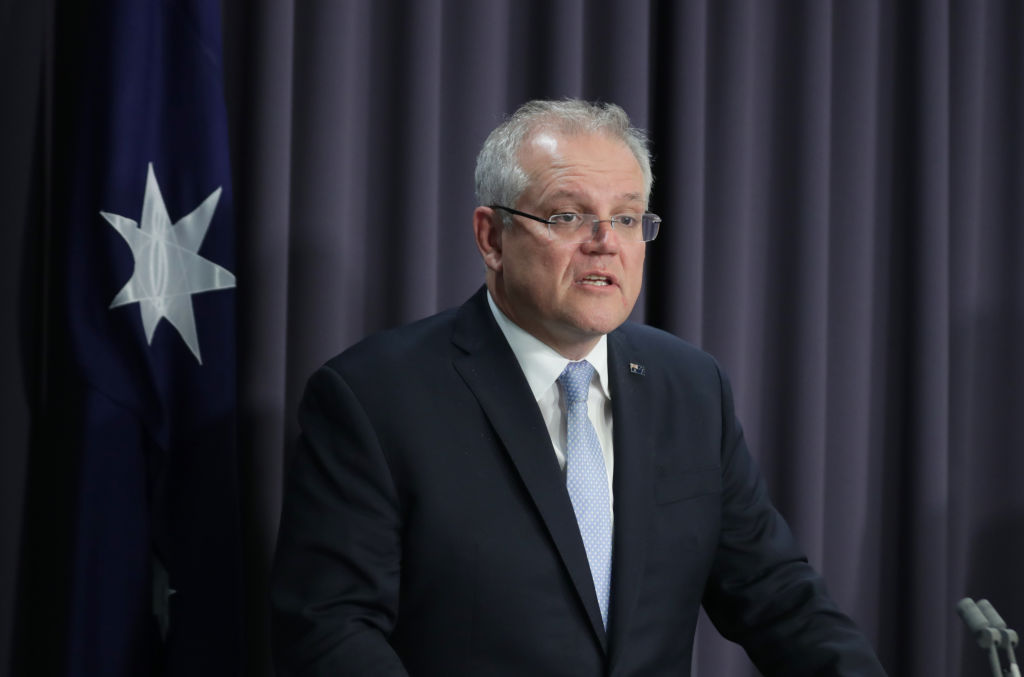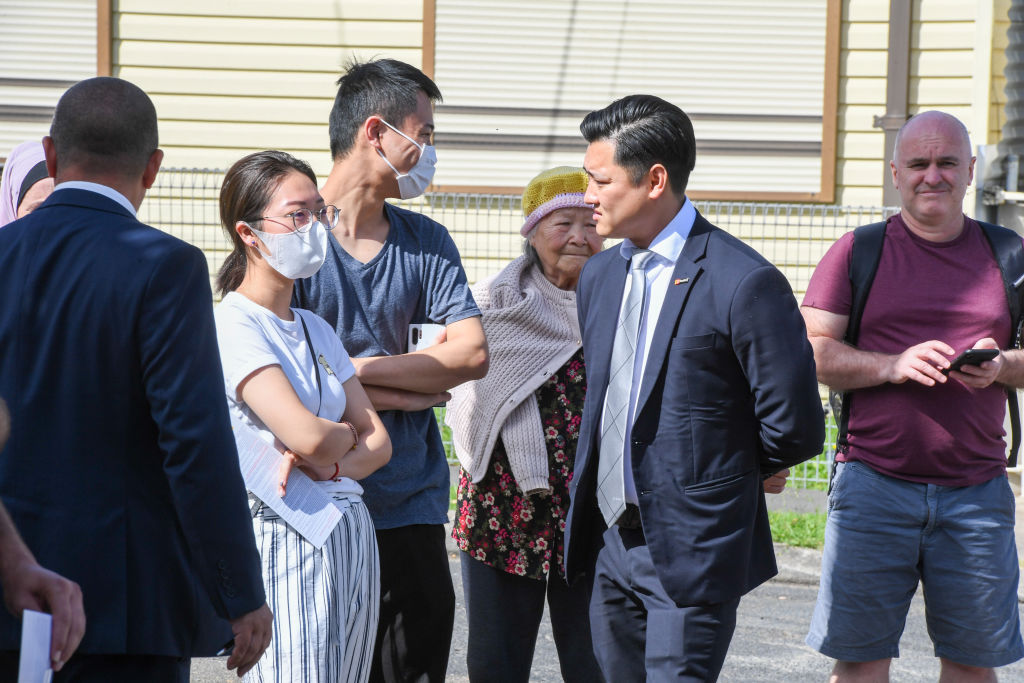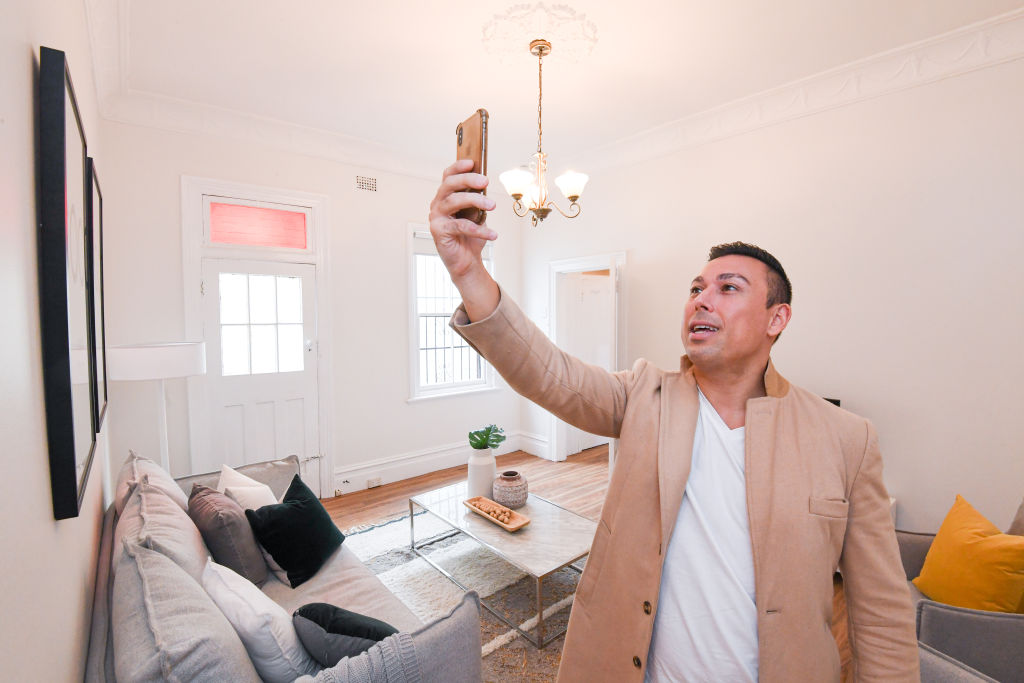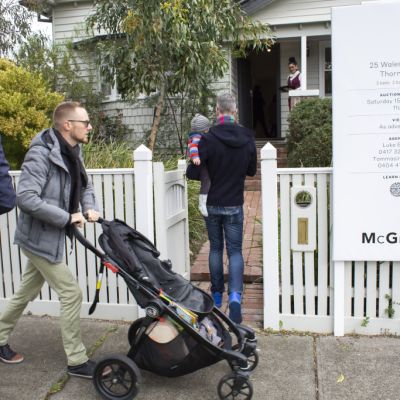Property listings to fall, general market hiatus tipped amid coronavirus lockdown, ban on public auctions
The real estate auction market is likely to go into a state of hiatus with fewer properties for sale, following a ban on public auctions and open for inspections in response to the coronavirus crisis.
The ban announced by Prime Minister Scott Morrison on Tuesday night had been anticipated by the property industry, with agencies making the switch to online auctions, private inspections and virtual tours in recent weeks. But the new measures, along with increasing economic uncertainty, are still expected to take a toll on the market.
“In the retail space, auction houses, gatherings together in auction rooms, that can no longer continue,” Mr Morrison announced on Tuesday night, as part of a raft of new measures announced in a further coronavirus crackdown.
“Real estate auctions and open house inspections – in particular, open house inspections – that cannot continue,” he added.
Private inspections are still allowed to go ahead.

Melbourne and Sydney, the nation’s busiest auctions markets, would be the hardest hit, said Domain senior research analyst Nicola Powell. Almost 4400 auctions had been scheduled to take place across the two cities over the coming two Saturdays.
“I’m anticipating many of those auctions have already sold, or been withdrawn or postponed,” said Dr Powell, noting in Sydney last Saturday more homes sold prior to auction than under the hammer. While the proportion of pre-auction sales was significantly lower in Melbourne – at 21.5 per cent according to preliminary results – this was a record high.
“Owners and buyers had already adopted … many homes hadn’t even gone to auction settings,” Dr Powell said.
However. despite options for online and phone bidding, Dr Powell is expecting auctions numbers – already traditionally lower over April – to fall, as some sellers switch to private treaty sales instead of continuing with virtual auctions, while others withdraw their homes from the market altogether.
“This is going to impact the property market, it is going to slow down transactions … they are going to be fewer and the ones that are occurring may actually take longer,” Dr Powell said.

“Those that still want to sell in the coming months, they are probably more likely to go for a private treaty sale, but what we might see is a pause for some vendors and they might wait until spring and hopefully by then … the peak of it will be behind us.”
She added the upper end of the market, which has more auctions, might suffer more in terms of a price pull-back.
SQM Research managing director Louis Christopher took to Twitter on Tuesday night to highlight the fact that most Australians buy and sell property via private treaty or tender.
He said while the new auction rules would have some effect on the market, the industry would continue to turn, with most properties likely to move to the private treaty sale process.
“Some may see this as an effective trading halt on the housing market. It isn’t,” he said.
“But all the same, listings and sales volumes will likely take a large hit until the crisis is over … and given that the banks will defer mortgage repayments for six months, there isn’t likely to be much forced sales activity.
“[The] market is likely to go into a hiatus period.”

McGrath chief executive Geoff Lucas expected vendors with homes listed for auction or sale would be keen to sell quickly, and was also expecting to see strong demand from serious buyers in the coming days.
“A number of people will look at trying to bring forward and execute transactions prior to auction, some will perhaps convert across to private treaty campaigns, and some will be happy to proceed with online auctions.”
While McGrath has already made the transition to online auctions – offering them as a supplement at all auctions last Saturday – he expected there would be resistance from some vendors to continue with auction.
However, he stressed said the announcement had given the industry clarity and the ability to keep serving clients.
“It did not shut the industry down, it gave us a clear path,” he said, noting sales and leases could continue via private and virtual inspections and online auctions.
“Open for inspections will be different, they’ll be done via private appointments so that will reduce the volume but it will increase the need for real estate practitioners to hone their skills.”

A drop in market sentiment was inevitable, said Douglas Driscoll, chief executive of Starr Partners – a Sydney-based agency with almost 30 offices.
“It’s not quite business as usual but we are still able to fire and function,” he said.
Listing volumes and auction results had been holding up well over the weekend, with people “clambering to buy real estate” Mr Driscoll said. However the impact of coronavirus in Australia had escalated rapidly in the past 48 to 72 hours, he noted, with buyers and sellers starting to see its impact on their everyday lives.
Mr Driscoll added Starr Partners — which sells about a quarter of properties via auction — and many agencies was well prepared to take auctions online, but warned vendors across the country should listen to their agent about the best way forward.
“[Their agent] will get an accurate gauge on whether they should or shouldn’t continue [to auction],” he said.
“If they can find someone pre-auction offering a fair price they need to seriously consider accepting it. The landscape is ever evolving, changing almost by the hour.”
The Real Estate Buyers Agents Association (REBAA) expected agents and sellers to steer away from virtual auctions in favour of private treaty sales.
“Agents will likely veer away from them as they can’t build the same number of buyers or read the competition like they ordinarily could via the private treaty process,” said (REBAA) president Cate Bakos.
“Buyers generally dislike auctions and are particularly suspicious of online auctions, which lack the usual transparency of a public auction,” she added. “Ultimately agents will adopt the method most likely to get the vendor the best result and results are only optimised by willing buyers.”
She also warned those turning to virtual inspections to be aware that agents may only show the most appealing aspects of property.
Hopes had been high that the cabinet would also announce rent relief for tenants affected by the pandemic and its economic fallout, or land tax exemptions to assist landlords facing a loss of income, but no announcement was made on Tuesday night.
Mr Morrison said the question of leases was set to be considered by the national cabinet in its next meeting on Wednesday night.
We recommend
States
Capital Cities
Capital Cities - Rentals
Popular Areas
Allhomes
More
- © 2025, CoStar Group Inc.









